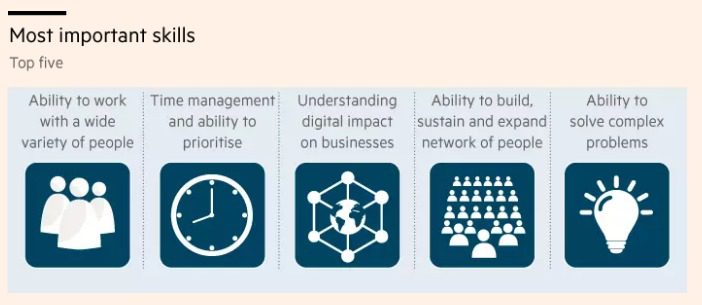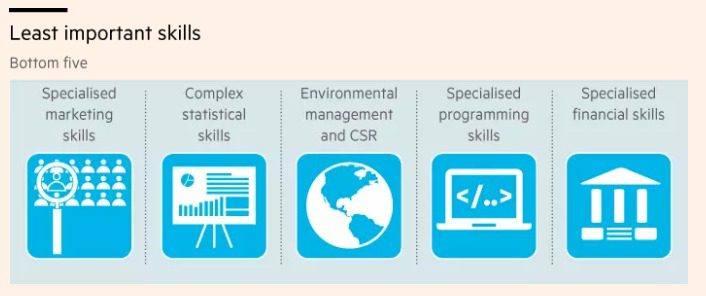What Employers Do and Don’t Look for In An MBA Graduate

Earning an MBA can often be a huge boost for graduates entering the job market, from opportunities for upper-level management roles to increased salaries.
But securing that job post-graduation can still be an uphill climb. Even with an MBA, students often find themselves struggling to understand how they fit within a changing job market. As the market continues to shift, understanding exactly what employers are looking for in their MBA applicants—and what they aren’t looking for—can be crucial for graduates as they search for and apply for their perfect job.
Thankfully, a recent survey from the Financial Times looked at the job market from the perspective of employers: what they are in need of in terms of MBA job seekers, and how MBA applicants can be more realistic regarding for the roles for which their new degree will qualify them. Unfortunately for many MBAs, the survey results may come as a surprise when they reflect on what skills they hoped their degree would offer in the first place. Yet, a critical understanding of what employers are and aren’t looking for can help job seekers re-frame the way they understand themselves and their prospective careers.
What Employers Want
The survey looked into the most important skills that employers look for in new MBA talent. Perhaps surprisingly, the five most important skills determined by the survey were actually not core MBA subjects. “Soft skills,” such as the ability to prioritize (desired by 72 percent of employers), the ability to work with a variety of people (76 percent of employers), and the ability for employees to effectively manage their time were the most desired and difficult to find, according to the survey.
The most difficult skills to recruit—the skills companies are sorely in need of—were most commonly named as the ability to use social media for the business’ needs, financial forecasting, big data analysis, brand storytelling skills, and the ability to train others.

The five most important skills, according to the Financial Times survey.
What Employers Don’t Want
The least important skills for an MBA, according to the survey, were those most often thought of as “hard skills,” such as specialized skills in marketing, finance, programming, or complex statistical skills. Similar skills were mentioned as the least difficult skills to recruit—the ability to solve complex problems and specialized marketing skills are often seen as common fare among MBA graduates and therefore a candidate with such skills won’t necessarily stick out.
Many surveyed employers said that past experience with MBA-holding employees had left them disappointed, with the degree-holder having difficulty turning concepts into practice. Many employers said that, while an MBA degree may be a nice bonus for a job candidate, the overall hiring decision is more based on the individual’s industry qualifications, rather than their degree.

These skills may be less necessary than MBA grads anticipate.
What Do You Need To Do?
So far, the results of the Financial Times survey may be disappointing for MBAs who have worked hard for their business education. No need to get concerned just yet, however. The employer response may have less to do with the idea that the skills of an MBA grad aren’t necessary in a company and more to do with a perception gap; the belief that business schools will not teach students the skills they need, and therefore that they do not need MBAs at their company.
Most of the work in convincing a skeptical employer your degree is worthwhile is simply convincing them that the skills learned as part of your degree are the same ones they desire. Many business schools are attempting to change the way MBAs are perceived and the type of skills that are associated with graduates. Julie Morton, Associate Dean of Careers Services and Corporate Relations at Chicago’s Booth School of Business, has already set half of her team to the work of promoting the value of MBA-holders in the workforce. Overall, much of the work will fall on business schools to market their graduates as holding the skills most desired by recruiters.
On a more individual level, however, the survey results also indicate that MBA grads can be more judicious in the roles that they apply to and the way they market themselves to potential employers. By focusing on the skills desired most—and the hardest to recruit—and ensuring that employers know these are the exact skills an MBA education offers, both employer and employee can benefit.
You can read the rest of the Financial Times survey here.
